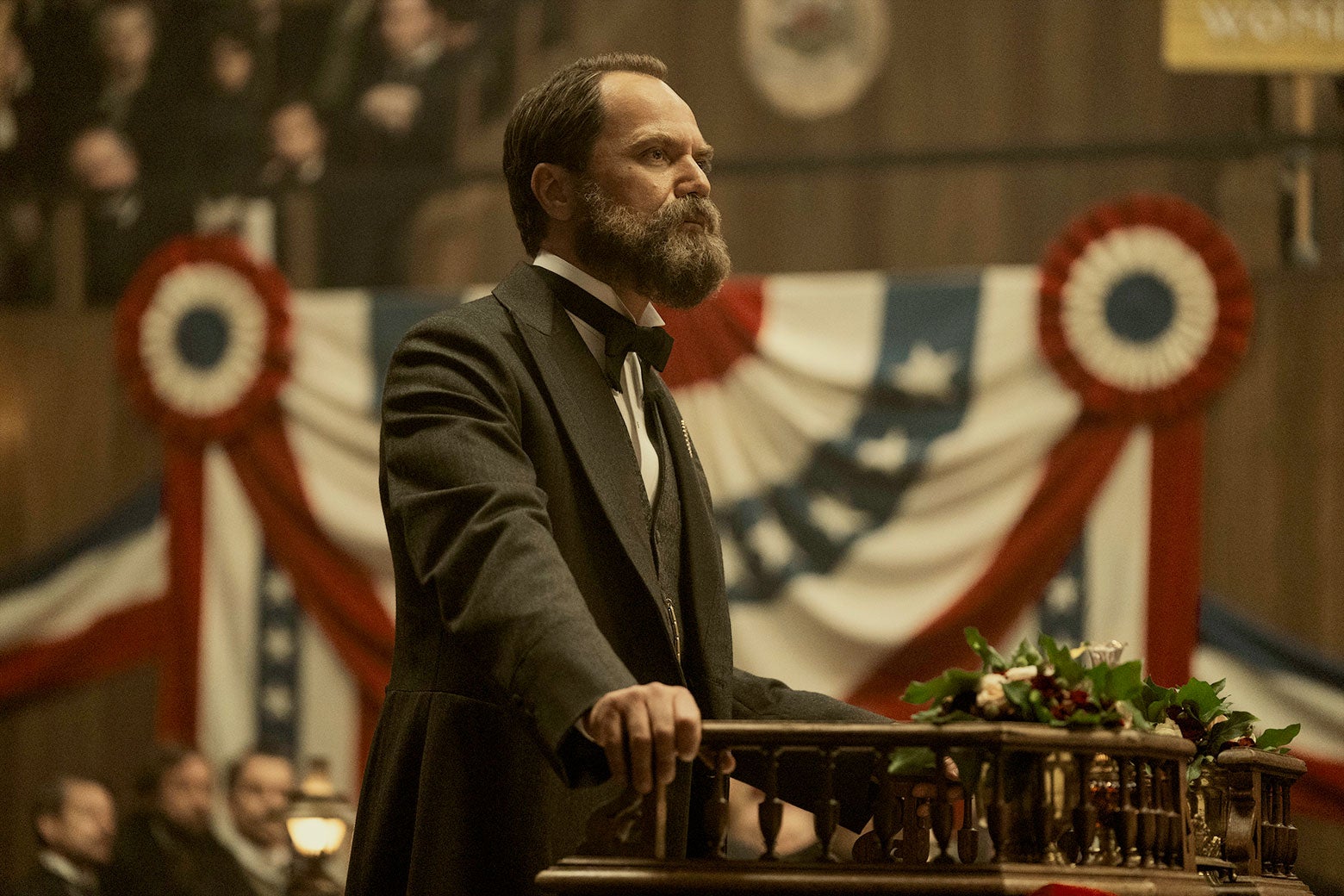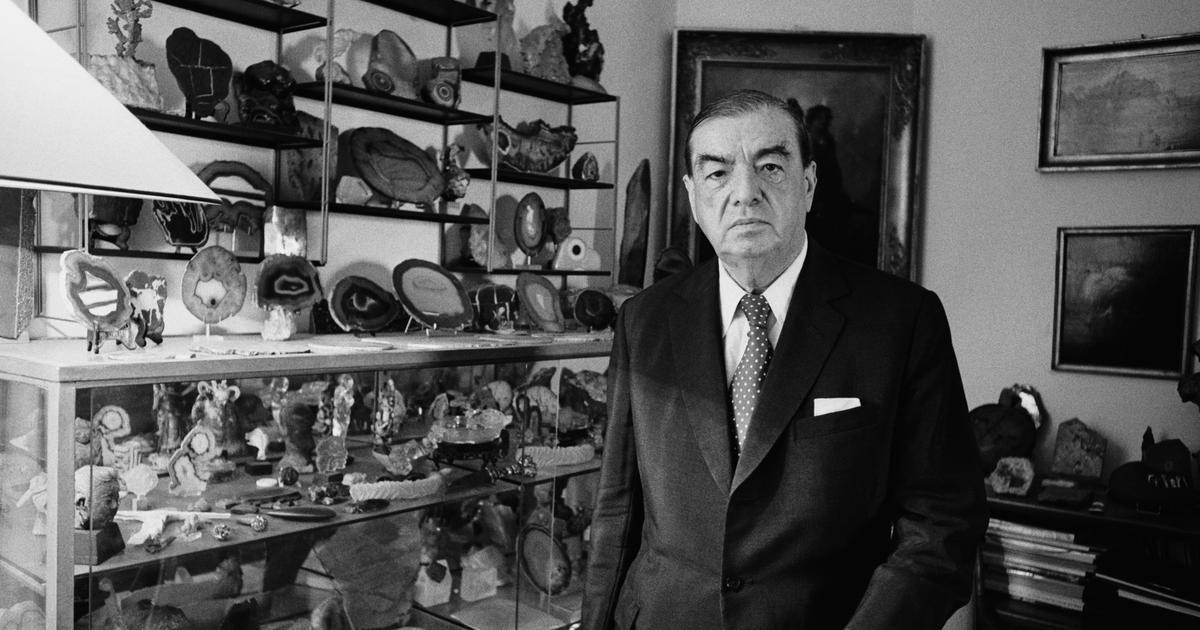He’s the President Remembered for Having Food Shoved Up His Butt. But What if He Was More?


James Abram Garfield has been remembered not for his life, but for his death. After America’s 20th president was shot by assassin Charles Guiteau in 1881, only four months after coming into office, he suffered for a summer with a bullet lodged in his back, attended by a doctor who did not yet buy into the theories of Joseph Lister, and who kept sticking unsterilized fingers and instruments into Garfield’s wound. When Alexander Graham Bell came to the president’s bedside to try to locate the bullet, using a new invention designed to detect metal, the doctor was so far off in his estimation of where the bullet might be that he had Bell scan the wrong place. The bullet was not found, and the president died of infection, having lost almost 100 pounds while in his sickbed.
In our own time, Garfield’s terrible death has served as fodder for people spelunking for “weird history” to make jokes about, like Cracked.com writers publishing pieces headlined “The U.S. President That Died With a Butt Full of Beef and Bourbon.” (Yes, that doctor also tried to feed Garfield rectally.) It seems unlikely that people who aren’t actively studying for the AP U.S. History test, or attending Garfield’s alma mater, Williams College, would know much else—about his poverty-stricken Ohio youth, his ascent from obscurity via scholastic excellence, his time serving in the Union Army as a major general in the Civil War, his mostly good reputation as a nine-term Republican congressman, and his dark-horse path to his party’s presidential nomination. It’s more likely they’ll know about the copious pus his body produced on its way to death. In 2006, the commissioning editors of an authoritative series of biographies on American presidents asked a historian of surgery to do the honors for Garfield—a telling, and depressing, choice.
Then, in 2012, popular historical writer Candice Millard published Destiny of the Republic, which tried to argue for Garfield’s significance as a symbolic descendent of Lincoln—an educated rustic, an honest person, and someone who, if he had stayed alive, might have assisted in the early Jim Crow–era struggle for Black civil rights. Now the Netflix miniseries Death by Lightning, adapted from Millard’s book by Mike Makowsky (Bad Education) and starring Michael Shannon as the ill-fated president, tries to make the case for Garfield as the forgotten hope of the 19th-century Republican Party, who would have made a real impact, if given a chance.
Shannon does valiant work, using his piercing gaze, which can feel creepy or threatening in other contexts, to convey a sense of steadfastness and trustworthiness in the fatherly Garfield. But part of the problem in establishing Garfield’s legacy, for both Millard in writing her book and Death by Lightning in adapting it, is that the battles over civil service reform that Garfield fought during his brief presidency with Republican New York Sen. Roscoe Conkling (played here by Shea Whigham) are, from our vantage, hard to parse. These internecine disputes caused deep division at the time, but now, trying to understand the vocabulary and stakes of these arguments can feel like reading a Reddit post explaining the factions in Game of Thrones. At one point, before he’s shot, Shannon’s Garfield responds to an underling’s praise of his performance against Conkling by saying “We haven’t even passed one bill”—an apt way to summarize the narrative frustration of the show, which must describe a promising and charismatic young leader reaching power, struggling against entrenched interests in his party, then dying almost immediately.
But the biggest issue with any success Death by Lightning might have at rehabilitating Garfield is that Succession’s Matthew Macfadyen, as the assassin Charles Guiteau, keeps getting in the way. The historical Guiteau is widely described as a “deranged office-seeker,” a pretender in all his pursuits, in law, writing, and politics. Sometimes, you hear the additional humorous detail that he had been kicked out of the utopian Oneida Community, where none of the women wanted to share “free love” with him, and nicknamed him “Charlie Get-Out.” (That’s in Death by Lightning, too. Brief flashbacks to the Oneida days, where Charles struggles to sleep in a dormitory while everyone around him is screwing like bunnies, add a bit of welcome humor to these proceedings, as do Nick Offerman’s appearances as the drunken bon vivant Chester A. Arthur.)
You see in Macfadyen’s portrayal of a fame-seeking, delusionally optimistic Guiteau the profound Americanness of this assassin—the way he oversold himself at every turn, and believed he deserved more than he had earned. This is in part due to Guiteau’s basic brain chemistry, and in part because his social worlds seem to disproportionately reward everyone else but him. (At Oneida, with sex; in Washington, with consulships.) Macfadyen’s Guiteau is an annoying, insistent bug of a man, whose eyes always seem to be roaming nervously around, and whose slab of a beard he uses to gesture emphatically when pressing his case. Almost immediately, everyone who meets him shoves him away. Yet, in scenes with his patient sister, Franny (Paula Malcomson), Macfadyen seems like a fortysomething boy, innocent and placating. There’s something pathetic about this murderer. In jail, Guiteau still believed that he would be given an appointment by Arthur, as payment for getting Garfield out of the way. (He was not.)
You leave Death By Lightning admiring Garfield, but thinking up ways to write Guiteau—a quintessential toxic failure, the ultimate “historical guy we should thank our stars never got on the internet”—into a novel. Death by Lightning tries to bring back a good man, but succeeds at resurrecting a bad one.
Slate





